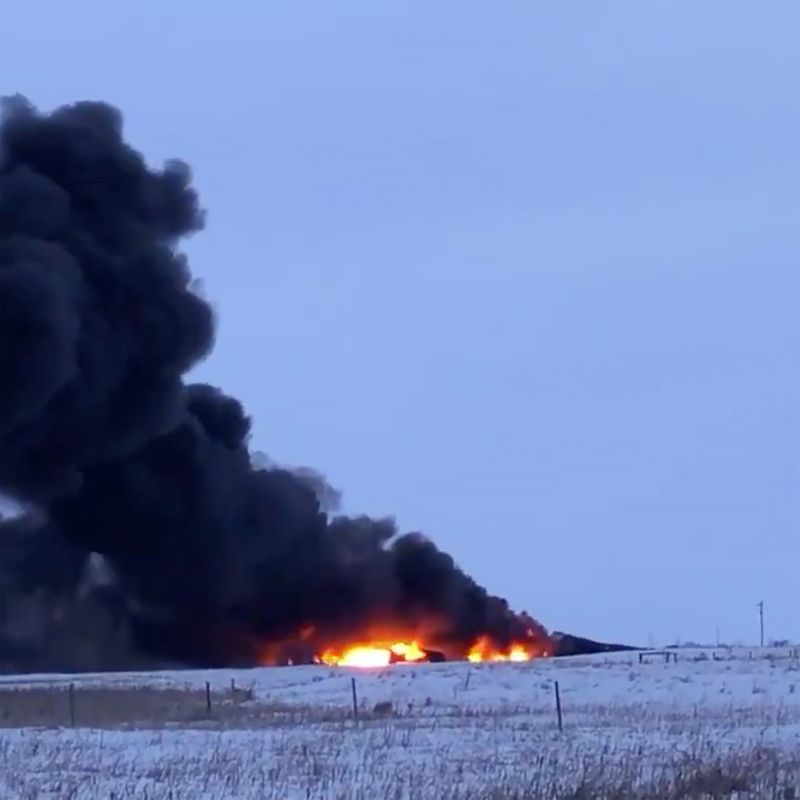
Black smoke and blaze rising from the derailed Canadian Pacific train in Guernsey, Saskatchewan, Canada February 6, 2020, in this still image obtained from social media video. LANIGAN ADVIDOR – DANIEL MUSHMAN/via REUTERS
February 6, 2020
By David Ljunggren and Rod Nickel
OTTAWA/WINNIPEG, Manitoba (Reuters) – Canada said on Thursday it would impose temporary speed limits on trains hauling dangerous goods after a Canadian Pacific Railway Ltd crude oil train derailed and caught fire.
The accident, which happened in the early hours of Thursday near Guernsey, Saskatchewan, was the second derailment in the area in a span of two months.
Federal Transport Minister Marc Garneau said that effective at midnight Friday (0500 GMT), trains hauling more than 20 cars of dangerous goods would be limited to 25 mph across the country for the next 30 days.
The limit in urban areas will be 20 mph, he told reporters. Depending on results of the probe into Thursday’s derailment, the 30-day period could be shortened or lengthened. The reductions represent a halving from the normal speed limits.
“I realize there will be an effect on the economy of the country … but it is very very important that we do not sacrifice safety,” Garneau said.
Canadian Pacific President and chief operating officer Keith Creel said he fully backed the move and had already implemented the slowdown.
“Until we better understand the facts relating to today’s incident, it is prudent to operate with an abundance of caution,” he said in a statement. The company said there had been no injuries.
Dangerous goods include crude oil that is diluted with condensate, gasoline, diesel, chemicals and some fertilizers, said John Zahary, chief executive of Altex Energy.
The order will have a knock-on effect through the transportation system as rail workers and locomotives are tied up on longer trips, he said by phone.
“There is a finite number of people, of engineers driving the trains, a finite number of locomotives. So there is a direct impact on the dangerous goods, and maybe an indirect impact on everything else,” he said.
“All that stuff is going to slow down.”
In July 2013, 47 Canadians died in the Quebec town of Lac-Megantic after a train with oil tankers derailed and exploded.
(Reporting by David Ljunggren in Ottawa; Additonal reporting by Ankit Ajmera in Bengaluru; Editing by Leslie Adler and Alistair Bell)

